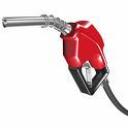Tag Archive
 Even though forecasters predict a slow 2008 for automobile sales, many dealerships are hoping for a steady recovery toward the end of the year. More specifically, some dealers are backing up their hopeful outlook by reinvesting money back into their own businesses. Their stocking levels and ordering project 2008 will be about the same as 2007.Â
Even though forecasters predict a slow 2008 for automobile sales, many dealerships are hoping for a steady recovery toward the end of the year. More specifically, some dealers are backing up their hopeful outlook by reinvesting money back into their own businesses. Their stocking levels and ordering project 2008 will be about the same as 2007.Â
Some think 2008 will have some late momentum and that things will start to get better. They are hopeful that they saw the bottom in 2007. In 2007 just over 16 million cars were sold in the U.S., down from almost 17 million the previous year.Â
In Detroit, analysts predict that 2008 may fall to around 15.5 million cars and trucks. Regardless, dealers will be looking for a way to increase profits. The aftersales market, including auto warranty sales will probably be a great way to make more money. Dealers who sell new car warranties and used car warranties generally make $500-$1,000 dollars on each warranty sale. Aftermarket auto warranty companies are their only threat as they have much smaller markups so their prices are considerably lower.
I guess time will tell, we’ll check again in January 2009.
 A new law that took place last week in Minnesota requires a higher standard to dealerships selling vehicles advertised as “certified†used cars.
A new law that took place last week in Minnesota requires a higher standard to dealerships selling vehicles advertised as “certified†used cars.
In the past, a dealer might be able to explain certified many different ways, possibly withholding history or damage towards the vehicle. Under the new used car warranty law that is part of a “car owners’ bill of rights†passed last spring, state law requires, among other things, all certified used cars must go through a thorough inspection. All sales must include an auto warranty whether by the dealership or one of the many quality aftermarket auto warranty companies…
Besides defining “certified,†dealers now must make over 40-disclosure statements including whether a credit report was done in determining their ability to pay off their loan. These new requirements help restore a new car buyer’s faith in making their purchase.
Regardless of whether the vehicle is certified or not, used car warranties should be an essential part of any purchase.
 One of our customers asked, does my car really need high grade gasoline?
One of our customers asked, does my car really need high grade gasoline?
With gas prices at near all time highs, people on tighter budgets want to know using lower octane fuel is OK. If you ask the gas station you’ll get different opinions. Some think that it does help a car’s engine to run better, but most think it just doesn’t matter.Â
After polling a group of automotive gurus, it appears that most of them believe that using a lower octane fuel does little or no damage to the car. The consensus is that even if it is not recommended by the manufacturer, you can probably get away with using a less expensive fuel.Â
A lower octane gasoline may cause a slight knock in the engine but it doesn’t necessarily mean the engine is struggling. The knocking is actually a more violent detonation of more explosive gasoline. The lower the octane, the more explosive, the louder the knocking.Â
Additionally, almost all cars marketed in the US over the past 10-15 years that operate with a fuel injection system have knock sensors. These sensors can sense when there’s lower octane fuel and adjust to it.Â
These more complex systems can be expensive to repair so an auto warranty is more necessary than ever. Used car warranties can be tricky so make sure you choose an aftermarket auto warranty that offers a close to bumper to bumper protection as possible.
 When buying a new or used car, don’t just sign the contract that’s put in front of you. Make sure you ask some questions about all of the extras that are added on after you make the deal on the car. Fees like doc fees, financing fees, delivery fees, and fees related to used car warranties are not always justified.
When buying a new or used car, don’t just sign the contract that’s put in front of you. Make sure you ask some questions about all of the extras that are added on after you make the deal on the car. Fees like doc fees, financing fees, delivery fees, and fees related to used car warranties are not always justified.
A good auto warranty needs to be negotiated prior to taking your vehicle home. If you are told any fee is mandatory, make sure you question it and ask for proof.
 Back in the summer of 2007 one of my clients purchased a used Land Rover Discovery from a dealer. It came with a mechanical breakdown warranty issued by an aftermarket auto warranty company. On the date of purchase the car had 85,000 miles and 3,500 miles later it broke on the highway and had to get towed. The claim was called in to the company that issued the warranty in accordance with the contract terms. The vehicle was taken to a local dealer where the rear axle had to be broken down for inspection. The inspector advised that the damage was not a covered claim by the warranty because it was a wear & tear failure. The selling dealer insisted that the vehicle had no problems at the time of sale, so he could not be held liable for the cost of repairs. The repairs needed entailed replacing a seized rear differential following a bearing failure. The vehicle needed to get back on the road so the repairs were completed and the issue is now in small claims court.
Back in the summer of 2007 one of my clients purchased a used Land Rover Discovery from a dealer. It came with a mechanical breakdown warranty issued by an aftermarket auto warranty company. On the date of purchase the car had 85,000 miles and 3,500 miles later it broke on the highway and had to get towed. The claim was called in to the company that issued the warranty in accordance with the contract terms. The vehicle was taken to a local dealer where the rear axle had to be broken down for inspection. The inspector advised that the damage was not a covered claim by the warranty because it was a wear & tear failure. The selling dealer insisted that the vehicle had no problems at the time of sale, so he could not be held liable for the cost of repairs. The repairs needed entailed replacing a seized rear differential following a bearing failure. The vehicle needed to get back on the road so the repairs were completed and the issue is now in small claims court.
The moral of the story is when purchasing an auto warranty for your used car be sure that the plan is of the highest caliber. Read through the contract as some used car warranties leave much to be desired.
 At one time or another every vehicle owner has been stuck on the side of the road or highway with a vehicle that has broken down. Faced with the fact that a large repair bill is imminently on the horizon this is not a happy time. To avoid this helpless feeling some people choose own auto warranties to protect their pocketbooks.
At one time or another every vehicle owner has been stuck on the side of the road or highway with a vehicle that has broken down. Faced with the fact that a large repair bill is imminently on the horizon this is not a happy time. To avoid this helpless feeling some people choose own auto warranties to protect their pocketbooks.
There are many companies in the market that offers different types of warranties. Below auto warranty tips on what a person should keep in mind when buying new car warranties or used car warranties.
First, inquire about the coverage that a warranty company provides. Get information about the warranties available in the market as different type of warranties cover different replacement parts. Some companies offer online information on auto warranties so the buyer can purchase the right plan for their vehicle. Some different types of coverage available are bumper-to-bumper, component, and powertrain type coverage.
With so many car warranty companies out there some are not of the highest quality. Companies claim to cover many parts but once bought, they deny many claims. This is why a buyer must research the company they choose carefully.
 It comes as a surprise to most that their car starts getting mechanical failures as soon as the original factory warranty comes to an end. The pile of bills just keeps getting higher and higher and there is no way out of it. To avoid these most people go for a car warranty. The warranty ensures that you will have not only the peace of mind of knowing that should there be any mechanical failure in the car it can be easily repaired, but also that you can take it to the repair shop of your choice and have the cost of the claim covered by the company with whom you drafted the contract. The warranty nearly covers most of the costs of repairs from dead batteries to mechanical failures.
It comes as a surprise to most that their car starts getting mechanical failures as soon as the original factory warranty comes to an end. The pile of bills just keeps getting higher and higher and there is no way out of it. To avoid these most people go for a car warranty. The warranty ensures that you will have not only the peace of mind of knowing that should there be any mechanical failure in the car it can be easily repaired, but also that you can take it to the repair shop of your choice and have the cost of the claim covered by the company with whom you drafted the contract. The warranty nearly covers most of the costs of repairs from dead batteries to mechanical failures.
Â
Nowadays another new trend is being set by the companies offering car warranties in order to ensure more customers. Some of the car warranty companies now provide their customers with free of charge transportation in case their car breaks down on the freeways. Now those who are stuck on the highways do not have to wait tirelessly for a Good Samaritan to help them.
Â
Could be related to cooling of housing market, analysts say.
An article in Reuter’s today says the luxury car and SUV markets are facing a decline, reflected by a dip in sales.
Driven by aging baby boomers at the peak of their earnings power and dominated by European and Asian brands, the luxury segment of the U.S. auto market has grown by 20 percent since the start of the decade.
That growth, which came despite a pullback in the pace of less-pricey auto sales over the same period, brought the luxury segment to about 12 percent of 16.9 million vehicles Americans bought in 2005.
But luxury car sales are down about 4 percent this year, and some analysts are seeing a potentially worrying connection with another venue for conspicuous consumption: real estate.
Overall car sales had been on a downturn, but premium vehicles have been insulated from this trend until now. The possible link to the housing market has largely been based on the parallel decline of luxury car purchases and the housing market observed in California.
See Also
“IRS Increases Vehicle Reimbursement Rate”
The IRS has increased the vehicle reimbursement rate.
The Internal Revenue Service today issued a 2007 allowable vehicle reimbursement rate of 48.5 cents per mile, despite a moderation in gas prices compared with the volatile post-Hurricane Katrina prices of a year ago.
The 2007 rate is an increase from the 2006 rate of 44.5 cents per mile.
Many businesses use this rate as a guideline for their compensation of business travelers who use private vehicles to do company business.
See Also
“Government wants to keep confidential some vehicle safety data” – Detroit Free Press
According to a recent article in the Detroit Free Press, the National Highway Traffic Safety Administration wants to keep certain vehicle safety data private.
From the article:
The proposal, similar to past versions, came in response to a ruling by a federal judge earlier this year that the agency had failed to provide enough notice to comment on an early warning system plan. In the March ruling, District Judge Richard J. Leon sent the proposal back to the agency.
The early warning system was part of legislation approved by Congress following the massive recall of Firestone tires in 2000. It required automakers and other manufacturers to submit data on deaths, injuries, consumer complaints, property damage and warranty claims.
NHTSA said its proposal would consider certain early warning information as confidential, including production numbers not involving light vehicles, consumer complaints, paid warranty claims and field reports.
Apparently the requested disclosures violate a public records law that prohibits sharing information that could result in privacy intrusion.
See Also
 Even though forecasters predict a slow 2008 for automobile sales, many dealerships are hoping for a steady recovery toward the end of the year. More specifically, some dealers are backing up their hopeful outlook by reinvesting money back into their own businesses. Their stocking levels and ordering project 2008 will be about the same as 2007.Â
Even though forecasters predict a slow 2008 for automobile sales, many dealerships are hoping for a steady recovery toward the end of the year. More specifically, some dealers are backing up their hopeful outlook by reinvesting money back into their own businesses. Their stocking levels and ordering project 2008 will be about the same as 2007. 








 It comes as a surprise to most that their car starts getting mechanical failures as soon as the original factory warranty comes to an end. The pile of bills just keeps getting higher and higher and there is no way out of it. To avoid these most people go for a
It comes as a surprise to most that their car starts getting mechanical failures as soon as the original factory warranty comes to an end. The pile of bills just keeps getting higher and higher and there is no way out of it. To avoid these most people go for a